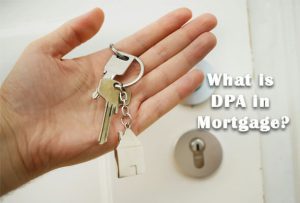When a house is condemned, it means the government has declared it legally uninhabitable. This is the reason why it is a nightmare for any homeowner to find out that the house that they have been paying off with a mortgage for years is being condemned.
Are you currently in a situation like this and need to know what your rights, responsibilities, and available options are? If “yes,” then you are in the right place! In this article, Sire Finance will walk you through everything you need to know to protect your finances and make informed decisions.
What Does It Mean for a House to Be Condemned?
By definition, a “condemned property” is a property the government has determined unsafe to use for residence due to health, structural, or other issues that pose risks to the inhabitants.
This may be because the government found severe negligence, extensive damage, or legal violations on the property. In this manner, the property is legally uninhabitable unless major repairs or complete demolition are done.
When your house is being condemned, the property itself loses value as collateral. Due to this, the lender may demand full repayment or pursue foreclosure if payments stop, as you, the property owner, are still obliged to pay the loan.
However, despite such an overwhelming situation, you must always remember that you still have legal rights, financial responsibilities, and practical options that you can consider moving forward.
How Does the Condemnation Process Work?
First, a building inspector or local code enforcement officer visits the property. If the property is found to be unsafe, a notice condemning the property will be sent to the owner. The owner might be allowed some time to make the necessary repairs, but if the problems are still bad or if the owner ignores them, the house remains condemned.
Common Reasons a House May Be Condemned
There are many different reasons that a property or a house can be condemned.
Some of the most common reasons behind house condemnation include:
- Structural failure, such as a sagging roof or foundation.
- Large-scale water or fire damage can endanger anyone.
- Mold or pest infestations threaten the health and well-being of the residents.
- Disruption of utility services such as water, electricity, sanitation, and basic needs for cleaning, heating, cooking, and the like.
- Unpermitted construction or zoning violations from an unapproved project, not following the approved plan, or local government safety code violations.
What Happens to Your Mortgage If Your House Is Condemned?
Your mortgage continues even though the house/property is being condemned. The house condemnation does not cancel your mortgage by any means, even legally; hence, you remain responsible for repaying your lender.
In case you fail to meet your obligations, the lender can opt for foreclosure proceedings, which greatly impact your credit score.
Can You Avoid Paying the Mortgage on a Condemned House?
Unfortunately, NO. Your mortgage doesn’t change as a result of the condemnation. However, the options that you can try are as follows:
- Insurance claim/s: If you have insurance, you can check and file any insurance claims to cover your mortgage.
- Negotiate with the lender: You can contact your lender and try to negotiate. Some lenders work with homeowners for a short sale of deed-in-lieu of foreclosure.
- Government Assistance Programs: Government assistance exists in certain states; check your eligibility and apply for any program that suits your needs.
Who Is Responsible for a Condemned Property?
Legally speaking, you, as the property owner, are responsible for the condemned property. In other words, you are legally liable for the taxes, fines, loan repayments, and any clean-up or demolition required by the local authority.
Steps to Take If Your Home Is Condemned
You have different options when dealing with the issue of condemned property. Here are the actions we recommend you take:
Contact Your Lender
Communicate with your mortgage lender as soon as you can so you have an idea of what they can provide. They might provide alternatives to foreclosure.
Review Insurance Policies
Remember to check your homeowner’s insurance, if you have it, to see whether it covers whatever damages led to the condemnation.
Consult Legal and Financial Advisors
If you are facing fines or foreclosure, seeking legal and financial consultation is the most logical route one can take in order to better understand your obligations and uphold your rights.
Explore Government Assistance Programs
Federal, state, or local programs typically offer financial relief or relocation assistance, and you can ask for help through those programs.
Consider Selling the Property
In some situations, selling the land or working with an investor or developer can be viable.
Can You Rebuild or Repair a Condemned House?
It depends. You can repair or rebuild your condemned house, depending on the local laws and the severity of the damage. If repairing the house meets local safety codes and you have the funds and permits, you can proceed to rebuild the property. Nonetheless, in other cases, demolition may be mandatory.
How to Prevent Your Home From Being Condemned
Prevention should always be the first choice of any homeowner to avoid a condemned property.
In order for you to protect your property, you should:
- Perform regular home maintenance
- Address structural issues promptly
- Comply with local building and safety codes
- Invest in proper insurance coverage
What Happens to a Condemned Property After Foreclosure?
If you avoid or stop paying your mortgage, your lender may move to foreclose your condemned home.
Once foreclosed, the bank has several options for the property:
- Demolition: The bank may proceed to demolish the property.
- Sell the land: The bank can sell the land to make a profit.
- Take other steps: The bank can do whatever it wants to recover its investment, such as leasing or renting.
Navigating the Road Ahead with Sire Finance
A condemned home with an active mortgage is overwhelming, but you have multiple options. Acting quickly, consulting with experts, and understanding your legal rights can mitigate financial damage and chart a path forward.
Here at Sire Finance, we help you explore solutions and regain control of your financial well-being. Whether you’re exploring options for a condemned property or facing foreclosure, we provide high-level support and customized solutions to help you move forward.
Sire Finance’s expert advisors are also more than ready to provide you with superb and high-quality services. With us, you are assured of a hassle-free process on your condemned property.
Contact us today for a confidential consultation.







